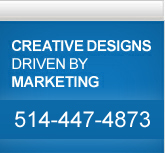|
A
| B | C
| D | E
| F | G
| H | I
| J | K
| L | M
| N | O
| P | Q | R
| S | T
| U | V
| W | X
| Y | Z
B
Background: That portion of a photograph or line
art drawing that appears furthest from the eye; the surface
upon which the main image is superimposed.
Backslant: Any type that tilts to the left or backward
direction; opposite of italic type.
Balance: A term used to describe the aesthetic or harmony
of elements, whether they are photos, art or copy, within
a layout or design.
Balloon: In an illustration, any line that encircles
copy or dialogue.
Banner: The title of a periodical, which appears on
the cover of the magazine and on the first page of the newsletter.
It contains the name of the publication and serial information,
date, volume, number .
Bank paper: A thin uncoated stock used for making
carbon copies.
Banker's flap envelope: Also called wallet flap;
the wallet flap has more rounded flap edges.
Baseline: Line typography, the imaginary horizontal
line upon which the main body of the letters sits. Rounded
letters actually dip slightly below the baseline to give
optical balance.
Bastard: Any non-standard or abnormal element,
i.e. a font that is different than the set of fonts in which
it appears.
Bauhaus: A design school in Germany where
the Sans Serif font was originated.
Bevels: Another way in which you can give
an object a three-dimensional appearance is by applying
a beveled edge to an extrusion. A bevel creates the illusion
that an object's extruded edges are cut on an angle. You
can specify the angle and depth values of
the bevel to control the effect.
Bezier Line: A line drawn one segment at a time
by adding nodes with the Bezier tool. A path defined by
the position of the four control points that are located
at the ends of the tangents of the vertices. The length
and angle of the tangents describe how a path deviates from
linear between its vertices.
BF: An abbreviation for boldface,
used to determine where boldface copy is to be used.
See also boldface.
Bible paper: A thin but strong paper (opaque),
used for bibles and books.
Bit Depth: The number of binary bits that define
the shade or color of each pixel in a bitmapped image.
For example, a pixel in a black-and-white image has
a depth of 1 bit, because it can only be black or white.
The number of color values that a given bit depth can
produce is equal to 2 to the power of the bit depth
Bitmapped Image: An image composed
of grids of pixels or dots.
Bit-mapped (mode): The Paint graphics mode describes
an image made of pixels where the pixel is either on
(black) or off (white).
Black (font): A font that has more weight than
the bold version of a typeface.
Bleed: An element that extends to the edge
of the page. To print a bleed, the publication is printed
on oversized paper which is trimmed.
Blend: An effect created by blending
one object with another through a progression of shapes
and colors.
Blind emboss: A design or bas relief
impression that is made without using inks or metal
foils.
Block in: To sketch the primary areas and
points of reference of an illustration in preparation
for going to final design or production.
Block quote: Along quotation -- four or more lines
-- within body text, that is set apart in order to
clearly distinguish the author's words from the words
that the author is quoting.
Blueline proof: A photographic process
whereby flats are exposed to blacklight and processed
to create blue lines of copy that are proofread before
a project goes to press. Also called "DYLUX.".
BMP: The Windows bitmap file format
(.bmp files) was developed as a standard for representing
graphic images as bitmapped images. Bitmapped images,
also called raster or paint images, are made of individual
dots, called pixels (picture elements), that are arranged
and colored to form a pattern. Increasing the size
of a bitmapped image has the effect of increasing
individual pixels, making lines and shapes appear
jagged.
Body: The main shank or portion of the letter
character other than the ascenders and descenders.
Body copy: Refers to the small type containing
the bulk of the message in an ad or a publication.
Body size: The point size of a particular type
character.
Body type: Roman -- normal, plain, or book --
type used for long passages of text, such a stories
in a newsletter, magazine, or chapters in a book.
Generally sized from 9 point to 14 point
Boldface: Any type that has a heavier black
stroke that makes it more conspicuous.
Book: A general classification to describe papers
used to print books; its standard size is 25x38 inches.
Book: A printed work that contains more than 64
pages.
Brace: A character " }" used to group
lines, or phrases.
Break for color: In layout design,
the term for dividing or separating the art and copy
elements into single color paste-up sheets.
Bristol board: A board paper of various
thicknesses; having a smooth finish and used for printing
and drawing.
Brochure: A pamphlet that is bound
in booklet form.
Brownline proof: A photographic proof
made by exposing a flat to UV light creating a brown
image on a white background. Also referred to as silverprint.
Bullet: A boldface square or dot
used before a sentence to emphasize its importance.
Burn: A term used in plate making
to describe the amount of plate exposure time.
Byline: In newsletter/magazine layout, a credit
line for the author of an article.
|
